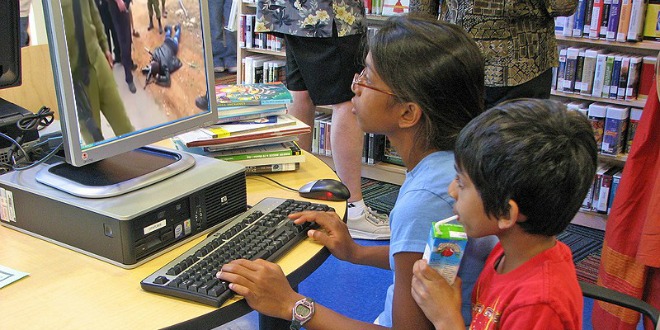According to a new survey of parents in Israel, children who were exposed to the horrific photos and videos of terror attacks on social networks in October and November have developed symptoms of anxiety in public places. Also, according to the survey, children exposed to online videos are 1.5 times more traumatized and anxious than those exposed through other media.
Over the last three months, Israel experienced dozens of stabbing attacks, ramming by car, and stone throwing, saturating the media with appalling attacks across the country. Unlike past years, almost every attack was accompanied by countless real-time videos documenting details of these attacks from every angle. The Tom Company, which offers parents means to control their children’s Internet viewing, ordered a special survey to examine the impact that this new reality has had on the children of Israel. The survey was conducted online from Oct. 29 to Nov. 11 by Nielsen Israel, among 300 parents of children ages 8-15 (Jewish population only).
The Data that was uncovered is alarming: 64% of children exposed to the videos are afraid to leave the house, and 50% of parents of children who have expressed concern about the security situation restrict or prohibit watching the news.
The parents in the survey were asked, “How would you describe the level of exposure of your children to the security situation in recent weeks?” and “Through which media were your children exposed to the security situation in recent weeks?”
97% of parents of children ages 8-15 report that their children were exposed to the security situation in recent weeks, with exposure being greater among older children. 60% of parents of children ages 12-15 reported a great degree of exposure, compared with 38% of parents of children ages 8-11. Most of the exposure, regardless of the age of the child, came after talks with family members (70%), conversations at school (66%), and TV news (59%), especially among older children. About a third (28%) of the children were exposed to the security situation through online videos. Most of the videos are transmitted over Whatsapp and social networks such as Facebook.
68% of parents whose children were exposed to the security situation through Internet media, report great degrees of exposure, compared with 46% of children who are exposed to the security situation through traditional media. Children exposed through Internet media were more affected (expressed more concern or worry), compared with children exposed through traditional media (78% versus 68% respectively).
“The survey highlights once again what we have known for years — parents today have no real control over content that our children are exposed to,” said Yariv Pe’er, CEO of Tom, adding, “The direct exposure of of children ages 8-15 through the Internet today has led to a painful outcome in which one in three children is going through a trauma. This situation did not exist here before, this is a new problem that every parent must address and take responsibility for.”
On the issue of restricting video watching, almost all parents (92%) think that blocking the videos will reduce the anxiety children feel over the security situation, while 65% even believe that the obstruction would lead to significantly reducing anxiety.
“Parents must limit their children’s access to questionable content for their mental health and should not worry about the child’s loss of freedom of choice. Home computers are not protected from content unsuitable for children, but there are solutions that enable providing protection for children while continuing free browsing for parents. We can’t completely block or prevent our children’s access to videos, but you can minimize the damage. The security situation today creates a digital reverberation of each security event. The echo of this reverberation can and should be reduced for the safety of our children.”
Earlier this year, the Tom company revealed that two out of three Israeli children surf porn sites before the age of 13 and are directly exposed to contents of violence, rape, pedophilia and sexual abuse. The same earlier survey showed that 95% of parents admit that their children between the ages of 12-15 surf the Internet without supervision.
The post Survey: Terror Attack Snuff Videos Affect 80% of Children appeared first on Breaking Israel News | Israel Latest News, Israel Prophecy News.
Source: Israel in the News


